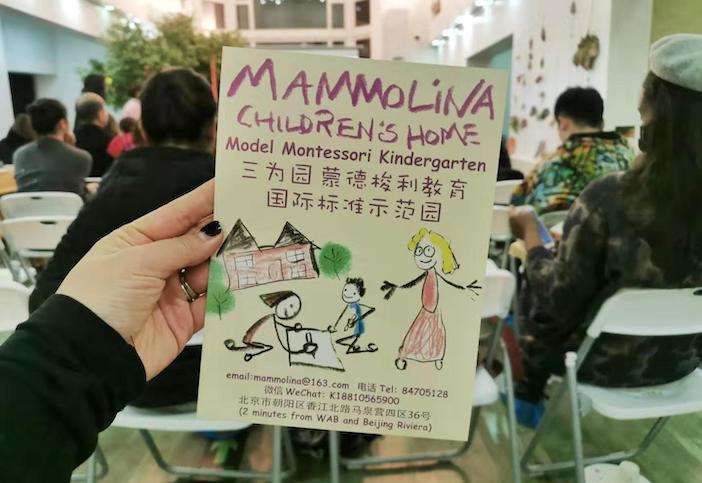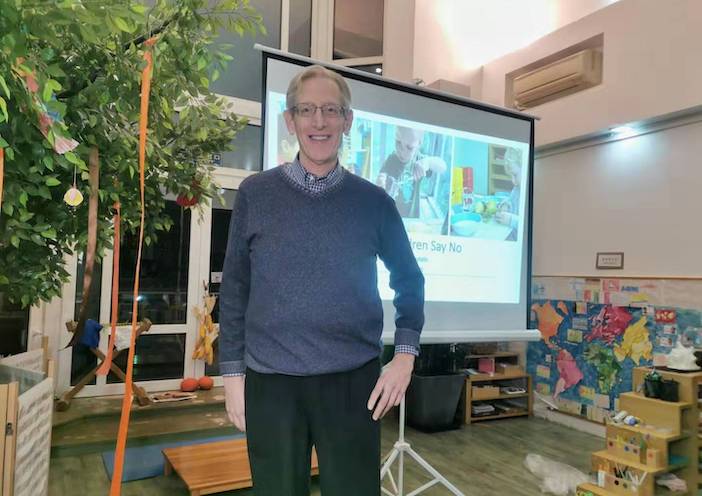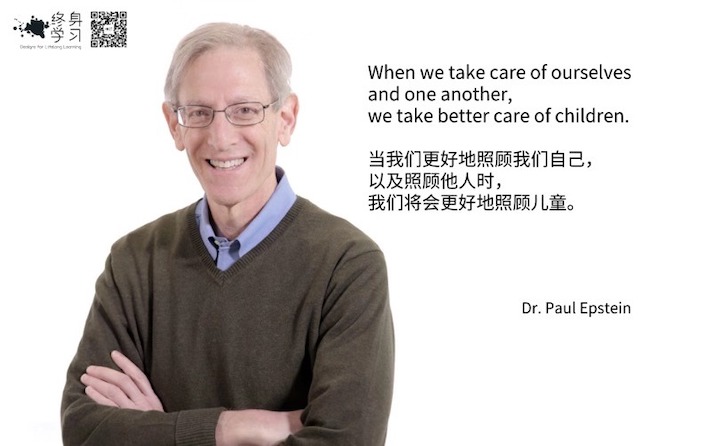On a chilly Wednesday evening, parents from around Beijing made their way to Mammolina Children’s Home to attend Dr. Paul Epstein’s talk on a topic that every parent has asked themselves at some point – what to do when your child says no.

Dr. Epstein is a father and grandfather and brings both his personal and professional experience to the table. He’s been working in Montessori education for nearly 45 years and is a keynote speaker at Montessori conferences throughout the world. Dr. Epstein has authored numerous articles and is the author of An Observer’s Notebook: Learning from Children with the Observation C.O.R.E. as well as co-authoring The Montessori Way, a definitive work of the Montessori experience.

Walking in I was expecting a lecture, with my laptop out ready for notes. Dr. Epstein threw me for a loop and turned a serious topic into a night filled with personal life experiences, interactions with and between the attendees, and laughter – making learning about productive parenting not only interesting but fun as well. After all, as a friend recently reminded me “parents are people too. We also like to have a good time.”
He didn’t talk down to us in the audience. He made his points by sharing real-life experience with stories about his own son and it’s that kind of honesty that made him relatable to every one of us sitting in the audience regardless of what stage of parenthood they’re at. We all grew up from children to teens to adults. We could all relate to examples.

Dr. Epstein started out the evening by breaking down what “no” means and why such a small word has such a strong impact in the way we deal with children. In short, he explains that we, as adults, have been conditioned to hear “no” in the same way, all our lives. We’ve spent all our lives associating the word “no” with the feeling of rejection so when our child says “no,” that one tiny one-syllable word pushes our buttons and stirs up feelings of anger and frustration.
What I took away from the evening is that children as young as 1.5 years old are able to hear and understand on a much more comprehensive level. Instead of giving orders and trying to control the outcome, what we need to do is guide them into becoming independent individuals.

Change your interpretations into observations. Instead of saying “you’re yelling loudly”, say “I can hear you yelling” – fact vs. opinion. Change your judgment of their actions to acknowledgment of their feelings. So instead of saying “if you keep yelling you’ll grow up to be a bad kid”, acknowledge their action and explain your feelings like, “when I hear you yelling I feel angry” so that they know why their action is upsetting you. Explain to them your need. For example, “when I hear you yelling I’m feeling angry because I really need some peace and quiet.” Finally, turn your demands into requests. There’s a difference. “If you keep yelling I’ll put you in your room” is different from “when I hear you yelling it makes me angry because I need some peace and quiet. Can you go outside?” By treating your children like young rational people, you’re contributing to the goal of a parent which is to raise an independent person. Your kids love you unconditionally the way you love them unconditionally. Dr. Epstein’s lecture (and I use that term loosely since it was so much fun) helps give you the tools you need to cultivate that strong parental bond.
To read more about Dr. Epstein’s work, check out his article on When Your Child Says “No!”
Photos: unsplash, provided by Dr. Paul Epstein, thebump.com




